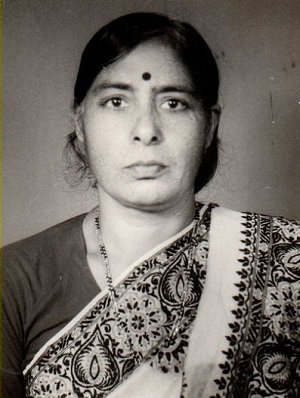Apr 14, 2025
Apr 14, 2025
This is a translation of the Original in Hindi written by Dr. Aruna Tyagi
Continued from Previous Page
 Perhaps language is the most important means of human association. Without the development of the Language Unity, the growth of the modern world is impossible. The Language Unity is most intimately related to National Unity. When we learn to love our nation, we shall learn to love our language as well. The sunbeams of the Independent India first and foremost illuminated the area of language. The problem of the National language is not the problem of some pure scientific language; instead it is the problem of the sovereignty of the nation. Today, Hindi, as the daughter of Sanskrit language, has been provided the status of the communication language of the entire India, the language of the people and the National Language. Hindi is the language of expression of emotions, feelings and discussion of ideas and thoughts of the Indian masses. In the words of Shri Praful Chand Ghattnayak – “In reality, Hindi is the language of the pilgrimages spread across India from the Himalayas to Kanyakumari; it is the language of the cities and the stations; it is the language of India’s introduction and acquaintance. Before the arrangement of trains and motors, the innumerable pilgrims, who travelled throughout India on foot from times immemorial, extensively publicized this language.” Further throwing light on the pervasiveness and profundity of Hindi language, Shri Ghattnayak says – “In totality, it is necessary to make Hindi so much capable and powerful, so that through the window of Hindi language, we could observe India; we could speak Hindi from the topmost peaks of the Himalayas and we all could listen to the voices of others.”
Perhaps language is the most important means of human association. Without the development of the Language Unity, the growth of the modern world is impossible. The Language Unity is most intimately related to National Unity. When we learn to love our nation, we shall learn to love our language as well. The sunbeams of the Independent India first and foremost illuminated the area of language. The problem of the National language is not the problem of some pure scientific language; instead it is the problem of the sovereignty of the nation. Today, Hindi, as the daughter of Sanskrit language, has been provided the status of the communication language of the entire India, the language of the people and the National Language. Hindi is the language of expression of emotions, feelings and discussion of ideas and thoughts of the Indian masses. In the words of Shri Praful Chand Ghattnayak – “In reality, Hindi is the language of the pilgrimages spread across India from the Himalayas to Kanyakumari; it is the language of the cities and the stations; it is the language of India’s introduction and acquaintance. Before the arrangement of trains and motors, the innumerable pilgrims, who travelled throughout India on foot from times immemorial, extensively publicized this language.” Further throwing light on the pervasiveness and profundity of Hindi language, Shri Ghattnayak says – “In totality, it is necessary to make Hindi so much capable and powerful, so that through the window of Hindi language, we could observe India; we could speak Hindi from the topmost peaks of the Himalayas and we all could listen to the voices of others.”
Out of the 14 languages * approved by the Indian Constitution, why is only Hindi considered as the rightful owner of this important position? It is natural for such a question to arise. We can answer this question in the wonderful and highly devoted words of the socialist, philanthropist and thoesophist, Mrs. Annie Besant – “Out of all the varieties of Indian languages spoken in different parts of India, there is one such language which has, in contrary to all other languages, a great speciality – that it is the most popular language – and that language is Hindi. A person who knows Hindi can travel in all parts of India and he can meet Hindi speaking people everywhere.” The vocabulary of Hindi language has the words from several parts of India; hence it is the language that unites the Indians in one string. It is the soul of the nation’s unity. Being the language of the entire nation, it is filled with the treasure of words from all regions. In fact, because of its simplicity and ease, Hindi is acceptable to all.
For the first time, the thought of making Hindi as the National language was inspired by Dr. Keshav Chand Sen which was further propagated by Swami Dayanand Saraswati. This is how a Bengali and a Gujarati philosopher accepted the importance of Hindi and presented it on the national forum. In the Indian Federation, Hindi is the original language of 44 percent Indians. On one hand, Hindi is the National Language of India, and on the other hand, it is the popular and practical language of almost half of India. The dialects of Hindi are – Awadhi, Brij, Magdhi, Rajasthani, Kaurvi, Punjabi and Pahadi etc; which further have almost 20 more dialects. All the state governments have accepted Hindi as the National Language. In the words of the famous poet Ramdhari Singh Dinkar – “From every point of view, Hindi is the most appropriate language to become the National Language of the entire nation.” Hindi language has the capability to influence the mind and hearts of the maximum number of countrymen. It is a blend of the cultural and the international elements. In times of need, India has emerged as one heart and resounded as one voice through the medium of Hindi language.
(* Originally 14 languages were approved by the Eighth Schedule in the Indian Constiitution.)
Continued to Next Page
26-Dec-2020
More by : Dr. Giti Tyagi